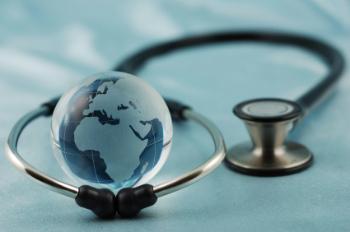Technology has made a difference in every field, but perhaps foremost among those fields is modern medicine. Thanks to hundreds of technological innovations in the past, human life expectancy is higher than ever. Technological advances are never-ending, and those entering the medical field now and in the future can expect to see new technology being used every year. Last year brought with it several extraordinary creations that are being used today to make medical administration easier than ever.
- Glasses Technology
The reviews for the usefulness of Google Glass on a social level are mixed, but it has proven to be extremely useful in the medical field. This wearable technology offers a hands free informational device that doctors can use for aid in surgery, transcription, telecommunication, and much more. Though not all doctors have prescribed to this tool, those who have report that it has helped to make many medical processes smoother than ever.
- MelaFind Optical Scanner
Melanoma, the most deadly form of skin cancer, requires an extremely invasive surgical biopsy in order to assess medical needs. In many cases, the MelaFind optical scanner allows doctors to gain the additional information they need to administer treatment without resorting to the painful biopsy.
- No Needles for Diabetes Patients
Diabetes patients can say goodbye to sore fingers with the new needleless glucose tester. Instead of poking themselves with a needle several times a day, they can simply don a patch that will test blood and determine the proper levels. The patch is still in trial mode, but it is expected to hit the market this year.
- 3D Printing
3D printing is an extraordinary invention for many industries, foremost among them, the medical field. 3D printing is now being used for biological purposes in order to help patients recover from ailments. These services include printing embryonic stem cells, skin to help burn victims, heart tissue, cartilage and bone replacements, and cancer cells for study.
- Internal Health Sensors
Many illnesses and conditions require constant medical attention, forcing patients to visit the doctor on a weekly or even daily basis. Now, in many cases, new digestible sensors are being used instead. Patients can simply swallow a tiny sensor that will monitor their vitals and transmit the information to the doctor, reducing the need for in-person monitoring.
- Telemedicine
Doctors have begun administering check-ups by robotics. They have long been giving advice over phone or Skype sessions, but now, they have the ability to not only diagnose patients from afar, but to also make rounds in the hospital. This innovation is revolutionary for many patients, since renowned specialists can administer to patients without the patients footing the additional bill of costly travel.
- Electronic Aspirin
For those with chronic migraines, there is a light at the end of the tunnel. Aspirin can now be administered electronically with an un-invasive implant that delivers proactive drips of morphine to help patients lead normal lives again. It’s just another way that technology is changing lives across the board.



